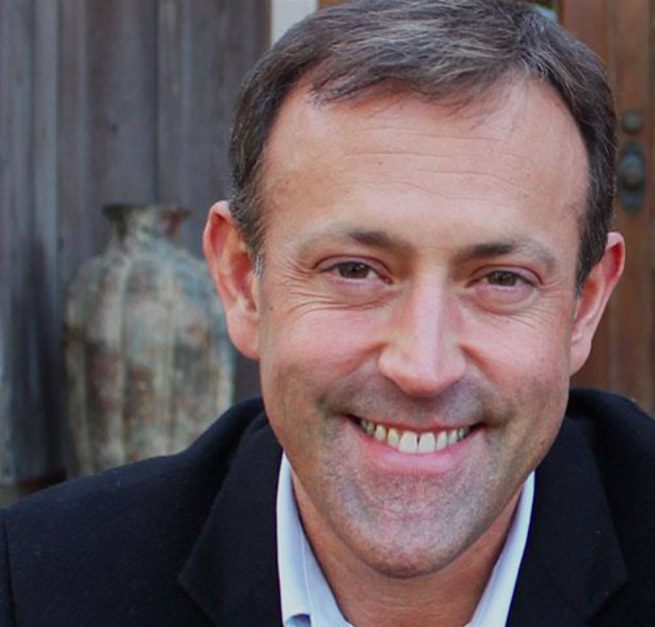 If you’re younger than 30, you likely have a list of favorite YouTube channels that you follow. Chances are also good that one of them is Good Mythical Morning featuring Link Neal and Rhett McLaughlin. I’ll confess I haven’t watched a ton of their stuff, but that’s mostly because I don’t watch much YouTube at all. Watching people eat bugs and murderously hot peppers isn’t really my thing, but it’s a different story for my kids. As it is also, evidently, for the more than 16 million subscribers these guys have accumulated since their show started back in 2012.
If you’re younger than 30, you likely have a list of favorite YouTube channels that you follow. Chances are also good that one of them is Good Mythical Morning featuring Link Neal and Rhett McLaughlin. I’ll confess I haven’t watched a ton of their stuff, but that’s mostly because I don’t watch much YouTube at all. Watching people eat bugs and murderously hot peppers isn’t really my thing, but it’s a different story for my kids. As it is also, evidently, for the more than 16 million subscribers these guys have accumulated since their show started back in 2012.
Did you know that these entertaining goofballs were once evangelical Christians who specialized in student ministry? Before this week I did not, and now that I think about it, it explains A LOT.
Rhett and Link met each other way back in Elementary school in North Carolina and they’ve stuck together into adulthood, at one time passing through a ministry phase as full-time staffers with Campus Crusade (now called Cru). While their degrees and first jobs were in engineering, funny video production ultimately became their claim to fame.
Last month, the GMM duo moved one of their podcasts, Ear Biscuits, to a separate channel in order to devote that space to an increasingly personal line of conversations about what led them to leave their faith and look for new sources of meaning and inspiration in the world in which they find themselves.
I could barely stay in my car seat listening to Rhett’s story. He was basically telling MY story, along with the stories of a hundred people I know who went through the same thought processes and the same emotional struggles. Only the dates and names were changed. I’ve heard these things described dozens of times by now, but never before by guys I know my still-believing daughters have been watching for years.
Anticipating the response he would get for opening up about all of this, Rhett addressed the No True Christian argument right off the bat:
I want to emphasize how big of a deal it was to me. It was a relationship. And I want to say that because I’ve noticed that when I tell my story, often people kind of conclude that I was never a true Christian…
As far as I’m concerned, Jesus was as real to me as he possibly could be without physically manifesting himself in my presence. It was a relationship. We were in conversation.
I hope you’ll take the time to watch/listen to the show for yourself, along with the follow-up episode in which Link tells his own story about how he left his faith behind after he became an adult. I’ll interact the most with Rhett’s “extimony” as it covered the lion’s share of their reasons for leaving the faith.
Read: “You Were Never Really One of Us“
Breaking Up with the Bible
As with most former evangelicals (henceforth “ex-vangelicals”), the majority of key turning points in Rhett’s deconversion story coincide with changes in his relationship to the Bible, and to his own tradition’s reading of it.
He first tells the story of how during college he fell in with a crowd of Young Earth Creationists who maintained that the universe is only 6,000-10,000 years old, give or take—a perspective he would adopt for many years to come. Evolution by natural selection seemed intolerably non-intuitive—it didn’t make any sense—and it struck him as a desperate and unsuccessful attempt to explain how a world like ours could come into being without an intelligent designer.
Of course, I had never looked at the evidence for evolution. I read books about it by people who didn’t believe in it.
Bingo! That was the key for all of us, wasn’t it? As an evangelical Christian, you learn to tackle controversial subjects by reading only books by other evangelicals as they talk through their own rationalizations for their beliefs.
The same goes for apologetics in general, doesn’t it? Apologetics books aren’t written for “the lost,” they’re written for the “saved.” They exist to collect dust on the shelves of believers who will now sleep better knowing that someone took the time to think through all that stuff long enough to get it down into print.
About 24 minutes into the podcast, Rhett compares the development of human DNA to an instruction manual that gets two pages permanently stuck together, leaving the headers and footers in place to show exactly where one ends and the other begins. That is an excellent analogy. He further likens the endogenous retroviruses shared between humans and other ape descendants to a coffee stain that shows up in later versions of a manual, demonstrating an earlier common ancestor who must have experienced the original mutation/stain.
These discoveries challenged the underpinnings of his whole theological system, but like all of us he was encouraged to press on through with his questions without fear because:
All truth is God’s truth. I’m not gonna be scared of the truth. God’s in control. He’s the one who’s established this entire universe. I shouldn’t be afraid to poke and prod at any of this stuff, right?
Man, does that feel familiar! I’m almost sure I said those same words at some point in my journey.
After abandoning a Young Earth view of the cosmos, Rhett wrestled next with the historicity of the rest of the Old Testament (the stuff about Jesus would have to wait till later). What he learned in time was that history disconfirms pretty much every major story from the flood of Noah all the way down through the Conquest of Canaan by the Israelites, with things not much improving for the next several books.
Read: “None of This Really Happened“
That was one of the hardest pills for me to swallow, too. How could so much of the history of Israel be made up? Like him, I was told that archaeology only proves the Bible, which means there’s no reason not to dive headlong into it, right? Just like always, our biggest mistake was that we did as we were told. That’s what pushed us out, in the end.
Breaking Up with Jesus
I laughed out loud when Rhett talked about engaging people on airplanes by spouting talking points from books by Josh MacDowell and Lee Strobel. Link asked, “Why on airplanes?” to which Rhett replied:
Because when you’re an evangelical Christian, when you sit next to a stranger, this may be the only opportunity you have to share the life changing message of Jesus with them.
Exvangelicals remember this compulsion well. Lori calls it “guerrilla evangelism,” and it’s a burden shouldered by everyone who knows Jesus. If you believe in him and love him, he is supposed to be the most important thing you can speak about with anyone you meet.
But it was Jesus’s turn to be under the microscope next.
Anticipating pushback from those who say you have to trust Jesus over the noise of your own intellectual questions, Rhett reminds us you cannot separate an historical figure from actual history and still say you’re talking about the same person.
My understanding of who Jesus is is not just based on my experience with him personally, but it’s also based on what the Bible has to say about him. This is how we know what there is to know about Jesus.
Which means the history matters. It was time to stop just reading Christian answers to everything and go a level deeper, looking next at the answers to the Christian answers.
Relocating with their families to Los Angeles around this time almost certainly made it easier for Rhett and Link to think through some of their questions, removed as they now were from the Christ-Haunted atmosphere of the Bible Belt. But it was while still back in North Carolina that Rhett’s wife, Jessie, had taken Bible courses under agnostic biblical scholar Bart Ehrman, and the historical questions those studies raised continued to impact their lives.
I won’t rehash all the arguments on which he touched (that’s your own homework to do if you’re interested), but in the end Rhett settled for himself that “the gospels are a mix of religious propaganda as well as actual history.” Like me, he leans toward believing that Jesus was a real person, even if he didn’t do magic or come back from the dead.
Read: “Was Jesus a Real Person?“
At this point in his story, Rhett uses some of the exact same language I use when trying to explain what it’s like trying to look at the world through a completely different lens…just to see if things look any clearer. It’s like trying on a different head just for a little while. Maybe you’re just checking to make sure a bolt of lightning won’t immediately strike you the moment you do.
I had been pulling on this thread for a really long time…Let’s call it the sweater of faith…I had been pulling on this thread until it had sort of turned into a vest…and then a midriff…and then a halter tap…and now it was a string bikini. And then I was like [**fwip**] I’m gonna take the bikini off.
The sweater of faith. I love it. I also appreciate him making a point of clarifying that bad experiences didn’t push him out of the faith. On the contrary, as he pointed out, being a straight white dude in an evangelical church kind of greased the rails for him.
No one that I was in personal contact with…pastors, Christian friends, elders in the church…none of them disappointed me or let me down. I did not have a personal tragedy…but I was angry at the thinkers. I was angry at the people who wrote the books.
I suppose I’m still partially sympathetic toward the people whose job it is to make sense of these things on behalf of the church. But I also know from experience that the work of defending the faith requires enormous amounts of self-deception, closing one eye and squinting the other to make sure things look the way they’re supposed to look.
That said, I sympathize even more with the ones who follow their own consciences out of the fold, in time being accused of every impure motive imaginable.
The Struggle is Real
Listening to both Rhett’s and Link’s stories, you can feel how much pushback they anticipate encountering from people who love them. In fact, at the conclusion of Link’s talk, they both indicated they’ll be setting this whole topic aside for a while in order to get their bearings. I don’t blame them. The stir online is probably exhausting.
They already know people are saying one of them led the other astray, as if we aren’t all being influenced by one person or another at any given time. Hopefully, they also realize these accusations are shots fired out of fear—fear that one day they may wake up to find that we are making at least as much sense as they are. It’s far easier to dismiss this all with the wave of a hand, ascribing imperfect motives to us as if that changes the facts themselves in any way.
Rhett and Link already know they’ll be accused of being arrogant. “Who do you think you are?” people will say to them. “Do you think you know more than all these other brilliant people before you?” Of course that knife cuts both ways, although the people who say this never do see how it should undermine their own confidence, as well. But then on top of all this, adding insult to injury, they keep underestimating the sincerity of our search, which may be the thing that stings the most of all.
I didn’t want to believe this…I didn’t want to leave this thing. This was my LIFE.
Preach, brother.
I remember my former “Christian marriage therapist” asking me point blank: “What are you getting from this? What does this obtain for you?” I told him honestly that it could only lead to loss and pain, but that I didn’t really have a choice. It’s hard not to feel insulted by his unwillingness to accept this. But then I remember this is part of how they protect themselves, knowing too well the fragility of their own faith.
Men Overboard
At some level, my therapist knew what everyone in his position knows: Once you start seriously considering the unthinkable about your faith, so many scary questions begin to plague you that it keeps you up at night.
How is my marriage going to stay together? What am I gonna teach my kids? This is what I’ve been teaching them. What am I gonna teach them now?
This! I want to hear MUCH MORE about this from Link and Rhett. I hope in the future they will explore that question a bit more, as well as their differing orientations toward hopefulness for the future of our species. I would also love to hear something—anything—from their wives about how they experienced the transition out of the faith while still remaining intact as a family.
I could go on and on, but I’ll wrap this up by looking at the last analogy Rhett used to explain what it’s like to leave the faith of your upbringing.
I kind of saw Christianity as this boat in a very stormy sea. It’s stable. There’s a lot of other people on it. It’s got a destination. You’re gonna get through this. It gives you something to hold on to. It gives you stability. It gives you purpose. It gives you direction. And it gives you community.
Really good analogy. And, like he says toward the end of yesterday’s talk by Link, the boat is real. It doesn’t really matter if it never reaches its destination. It still provides the stability and the community on which people’s lives depend. That’s why leaving it is so damned scary.
And when I jumped ship, I didn’t jump to another boat. I jumped into the water. And I pulled my wife and my children with me. I jumped into a sea of uncertainty. And that’s where I’ve lived for about six years.
Rhett says he’s lost his appetite for certainty, and I know what he means. Back in seminary they warned us that the world out there hates truth, and wants to be free to create their own reality. Leaving aside the irony of that accusation, I would simply say, as I always do, that certainty is the currency of fundamentalism. It isn’t the skeptics who crave constant assurances we’re on the right track.
No, we are the ones who learn to accept that on our best day, we’re still mostly grasping at straws. This insatiable need for certainty is something the still-faithful need to confront about themselves, not us.
I’ll leave you with Rhett’s self-description, since it seems a good place to stop:
I would call myself a hopeful agnostic. Meaning I don’t know, but I hope. I hope there’s something. And the question that I’ve gotten from some people who are close to me, who love me.
….What do you think happens after you die? I don’t know. I’m reasonably certain that you don’t burn in hell because you were intellectual curious and honest. To put it bluntly. But…I’m more interested now in what I do when I LIVE….because the only thing that I know that I’ve got is this life.
That’s humanism in a nutshell, and I feel the same way.
Let’s keep this conversation going, please.
[Image Source: Nerds and Beyond]
__________
If you’re new to Godless In Dixie, be sure to check out The Beginner’s Guide for 200+ links categorized topically on a single page.
And if you like what you read on Godless in Dixie, please consider sponsoring me on Patreon, or else you can give via Paypal to help me keep doing what I’m doing. Every bit helps, and is greatly appreciated.
















